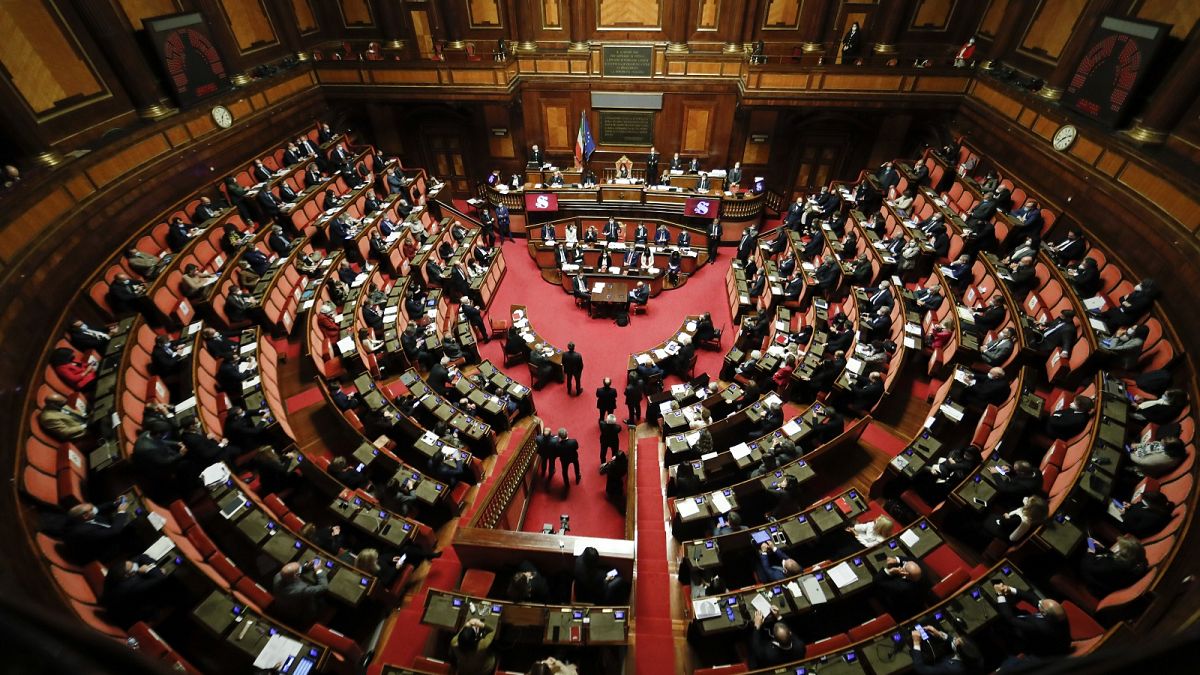Giuseppe Conte's government has survived a no-confidence vote in the Italian Senate after winning a similar vote in the lower house on Monday.
Italian prime minister Giuseppe Conte survived a vote of confidence held in the Senate on Tuesday evening but his coalition government, deprived of an absolute majority, emerged from the crisis weakened.
The vote was called after coalition partner Italia Viva (IV), led by former prime minister Mateo Renzi, withdrew its support from the government last week.
Senators voted by a margin of 156 to 140 with 16 abstentions in support of Conte's government in the upper house where the absolute majority is 161 seats.
All IV senators abstained while two Forza Italia senators broke with the opposition and voted in line with Conte.
Conte, a law professor and a technocrat prime minister who has never stood for election, had taken the first step to his government alive on Monday by gaining confidence in the Chamber of Deputies, where the remaining two pillars of his coalition - the centre-left Democratic Party (PD) and the anti-establishment Five Stars Movement (M5S) - have a majority.
Addressing the Senate before the vote on Tuesday, he said he wished "only pro-Europeans in the majority," saying "no to nationalists and those with sovereignist aspirations".
A call to mobilise left-wing senators in the face of the spectre of early legislative elections which, according to opinion polls, would open the way for an alliance between Silvio Berlusconi's right-wing Forza Italia and the Lega of Matteo Salvini and Georgia Meloni's Fratelli d'Italia, both far-right parties.
Convinced that Conte will not be able to govern for long with such a narrow majority, the three opposition parties said on Tuesday that they were "at work to build the alternative".
After successive confidence votes in his favour in both chambers, Conte's future at the head of the executive is not threatened in the short term.
Italy is used to weak or minority governments. Since 1946, the country has had 29 prime ministers and 66 governments. Giuseppe Conte himself governed with the M5S and the Lega between June 2018 and September 2019, before forming a new government with the M5S, the PD, and IV.
However, his room for manoeuvre is likely to be significantly reduced as Italy faces its worst economic recession since the post-war period as a consequence of the pandemic that has claimed more than 83,000 lives on the peninsula.
"Covid is a hurricane that is shaking up our society," he warned the senators, adding "a government crisis is putting the future of our children at risk".
Conte's position is now "extremely precarious" and his government "likely to fall at the first vote that would divide it in the coming months," Wolfgango Piccoli, an analyst at advisory firm Teneo, told AFP.
The current political crisis was caused by the withdrawal of two IV ministers and a secretary of state from the government.
Renzi criticised Conte in particular for the content of the €222.9 billion recovery programme drawn from the €750 billion plan adopted in the summer of 2020 by EU leaders and of which Italy is the main beneficiary.
The dual health and economic crisis "needs a stronger government... It's now or never, the future is now, not in three months' time," said the former prime minister in a speech from the Senate gallery.
Renzi also accused Conte of aligning himself with the M5S and "squandering public money" by granting tax rebates and emergency aid instead of taking advantage of the EU funds to invest and reform structurally.
He also called for the use of the European Stability Mechanism (ESM), a fund for eurozone countries in difficulty.
Analysts suspect Renzi of wanting to regain the media spotlight, as his party, credited with less than 3 per cent of voting intentions in recent polls, risks becoming irrelevant in upcoming legislative elections.
